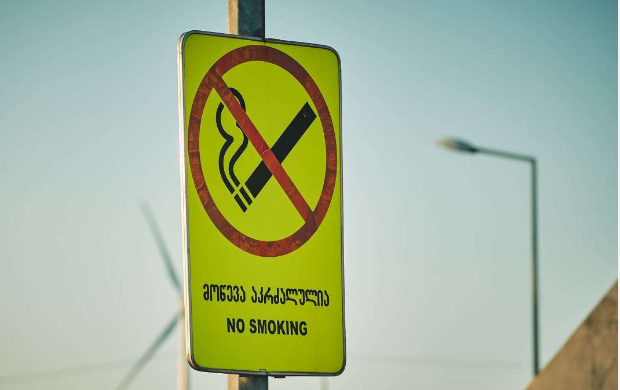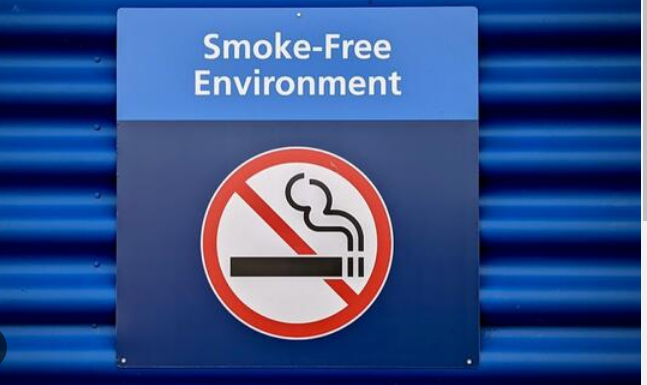Analyzing the Impact and Controversies Surrounding Smoke-Free Legislation in Atlanta and Beyond
Georgia’s recent endeavors to establish smoke-free public spaces represent a critical milestone in the state’s ongoing commitment to public health. Spearheaded by initiatives from local governments such as the Atlanta City Council and the DeKalb County Commission, the implementation of smoking bans in various public areas signifies a broader movement towards regulating tobacco and vaping products. However, these measures also prompt significant debate regarding individual freedoms, economic ramifications, and the intricacies of enforcement.
The Drive Towards Smoke-Free Public Spaces: The Atlanta City Council’s recent decision to enact a comprehensive ban on smoking and vaping in public spaces, led by Councilman Matt Westmoreland, underscores a resolute dedication to shielding residents from the harmful effects of secondhand smoke. Similarly, DeKalb County’s prohibition of smoking in government and private office buildings reflects a localized commitment to public health, albeit amidst concerns regarding governmental overreach and potential impacts on businesses.
A Broader Legislative Context: These local initiatives are situated within a broader legislative context in Georgia, with state-level efforts aimed at regulating vaping in public areas mirroring existing smoking regulations. These measures, while intended to safeguard public health, must navigate the intricate balance between governmental intervention and individual freedoms. Noteworthy exemptions for certain establishments, such as private clubs and designated outdoor seating areas, exemplify attempts to accommodate diverse interests and pragmatic enforcement considerations.

Implications and Challenges: While the implementation of smoke-free legislation in Georgia’s public spaces represents a commendable effort to protect public health, it also presents various challenges and implications. Critics of these bans raise valid concerns about personal choice and the autonomy of businesses, advocating for market forces to dictate policies on smoking. Conversely, proponents emphasize the paramount importance of public health and argue for the necessity of legislation in safeguarding community wellbeing.
The Complexity of Enforcement: One of the primary challenges associated with smoke-free legislation lies in its enforcement. Ensuring compliance with smoking bans across diverse public spaces poses logistical hurdles for authorities. Moreover, navigating the nuanced exemptions and delineations within the legislation requires clear guidelines and effective monitoring mechanisms. The successful implementation of these measures hinges on robust enforcement strategies and ongoing community engagement.
Economic Considerations: The economic impact of smoke-free legislation is another area of contention. While proponents argue that smoke-free environments can lead to increased patronage and productivity in public spaces, critics raise concerns about potential losses for businesses, particularly in the hospitality sector. Balancing public health objectives with economic realities necessitates careful consideration and proactive measures to support affected businesses during the transition to smoke-free environments.
Addressing Individual Freedoms: Central to the debate surrounding smoke-free legislation is the question of individual freedoms. Critics argue that such measures infringe upon personal liberties and represent undue government intervention in private affairs. Conversely, proponents contend that the right to clean air supersedes individual preferences for smoking, emphasizing the collective responsibility to protect public health.
Navigating Public Perception: Public perception of smoke-free legislation plays a crucial role in its acceptance and effectiveness. While many individuals recognize the health benefits of smoke-free environments, others may perceive such measures as encroachments on personal freedoms. Effective communication and education campaigns are essential to dispel misconceptions and garner support for smoke-free initiatives among the public.
Read More News:
- Savor the Extravaganza: Florida State Fair 2024 Unveils a Whimsical Culinary Wonderland
- Biden’s Border Gamble: How Trump’s Intervention Shaped the Political Landscape
Georgia’s recent efforts to establish smoke-free public spaces reflect a commendable commitment to public health and wellbeing. While these measures hold promise for reducing exposure to harmful secondhand smoke and promoting healthier environments, they also present complex challenges and controversies. Balancing the interests of public health, individual freedoms, and economic considerations requires careful deliberation and ongoing dialogue among stakeholders. Moving forward, Georgia must continue to refine its approach to smoke-free legislation, taking into account the diverse needs and perspectives of its residents.
